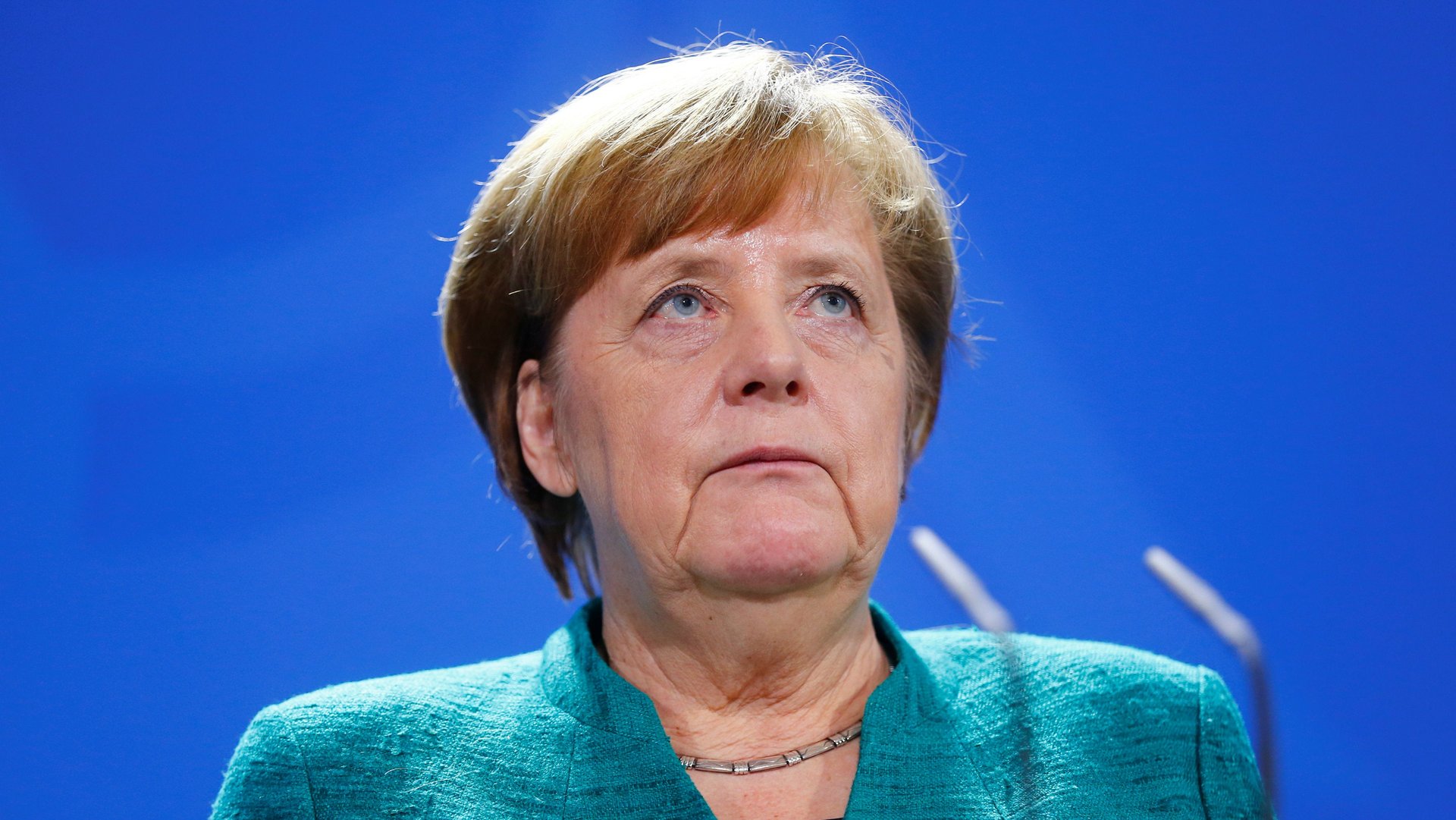Angela Merkel’s fourth term hangs in the balance as the Social Democrats vote
It’s been five long months since Germany’s 2017 general election flung the country into a state of political limbo and forced chancellor Angela Merkel and her Christian Democrats (CDU) into trying to form the first ever “Jamaica” coalition between the CDU, the Free Democrats, and the Left party.


It’s been five long months since Germany’s 2017 general election flung the country into a state of political limbo and forced chancellor Angela Merkel and her Christian Democrats (CDU) into trying to form the first ever “Jamaica” coalition between the CDU, the Free Democrats, and the Left party.
That attempt failed and left Merkel trying to cut a coalition deal with her former junior coalition partners, the Social Democrats (SPD), for another “grand coalition,” or “GroKo” as it’s called in Germany.
But the Feb. 7 coalition agreement wasn’t the final hurdle for Merkel. That started today, when some 460,000 SPD members were asked to vote “yes” or “no” to entering into another loveless marriage with their old partners.
The SPD vote could be make-or-break for Merkel. A “no” would likely lead to a snap election, and the chancellor’s 12-year reign could come to an end. Merkel has said she doesn’t want to head a minority government (the only other option she has), and there’s no guarantee that the CDU would beat its September result in a fresh ballot.
While the SPD negotiated some big wins in the coalition agreement, including grabbing the powerful finance ministry, the party is in total turmoil. Its leader Martin Schulz, who vied with Merkel in the election, stepped down after less than a year, and a recent INSA poll showed support for the SPD had dipped to around 15%. That makes the right-wing Alternative for Germany the second most-popular party in Germany. The threat of an even worse showing than the 20% it got in September may convince members that governing again with the CDU is the best option.
But the outcome of the postal ballot is by no means a given. The SPD’s youth wing has been energetically campaigning against the coalition, arguing that another power-sharing deal with the Christian Democrats will be a death knell for the party. The results are due on March 4.